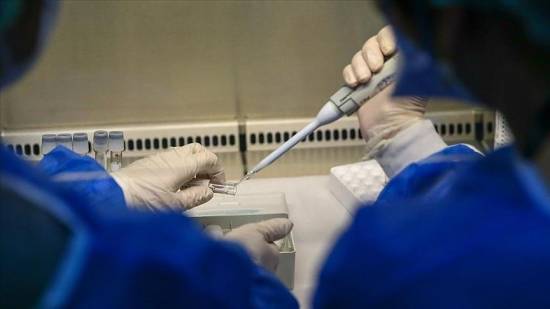Over 250 cases of monkeypox confirmed, but it can be contained: WHO expert Featured
More than 250 cases of monkeypox from 16 countries have been officially reported, but the disease can be contained, an expert from the World Health Organization said Tuesday.
Dr. Rosamund Lewis, the head of the Smallpox Secretariat of the WHO Emergencies Program, told journalists at a UN press conference that monkeypox's risk to the general public appears to be low.
"So, what we know from this virus and these modes of transmission, this outbreak can still be contained," said Lewis.
She said the aim of the WHO and its member states meeting at the World Health Assembly in Geneva is to contain the outbreak and stop it.
"The risk to the general public appears low because we know that the main modes of transmission have been as described in the past," said Lewis.
However, she said the countries reporting monkeypox now are those that do not usually have outbreaks of the disease.
"There are several countries in which this disease is endemic: Central African Republic, Democratic Republic of the Congo, Nigeria, and Cameroon are reporting cases, and there are other countries that have reported cases in the past."
Lewis said most of the animals that are susceptible to monkeypox are rodents, Gambian giant pouched rats, dormice, and prairie dogs.
Zoonotic spillover
"Those are the types of animals from which there may be spillover -- a zoonotic spillover -- from animals into people who may be going into the forest or coming in contact with the virus from a zoonotic route," said the WHO doctor.
The virus is typically found in animals, with a few cases in urban areas and among travelers.
Monkeypox symptoms start with a fever, followed by a rash that emerges after a few days and continues for two to four weeks, followed by swollen lymph nodes.
It is called monkeypox because it was initially discovered in monkeys.
Since the beginning of May, several monkeypox cases have been detected in nine EU countries: Austria, Belgium, France, Germany, Italy, Portugal, Spain, Sweden, and the Netherlands, as well as in Canada, Australia, and the US.
Symptoms can be very similar to those experienced by smallpox patients, although they are less clinically severe, albeit visually dramatic, with raised bumps and fever that can last from two to four weeks.
According to WHO, this monkeypox outbreak has been transmitted primarily by close skin-to-skin contact, although the virus can also be passed by breath droplets and contaminated bedding.
Incubation period
The incubation period of monkeypox is usually from six to 13 days but can also range from five to 21 days.
"We don't yet have the information as to whether this would be transmitted through body fluids," Lewis noted, urging potentially at-risk groups to "be mindful" when in close contact with others.
The disease "can affect anyone and is not associated with any particular group of people," said Lewis./aa


